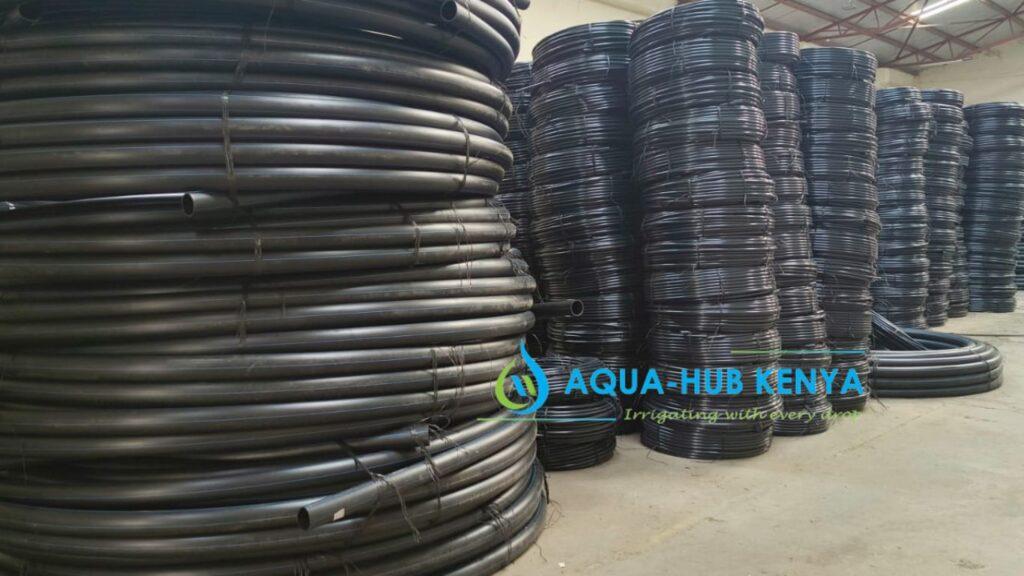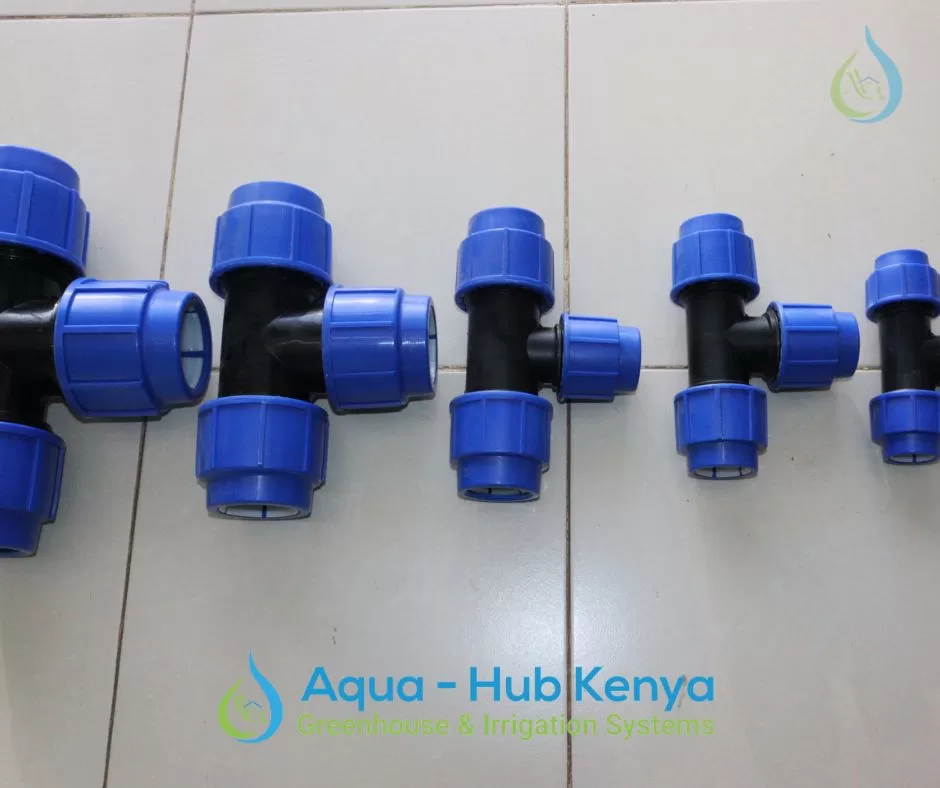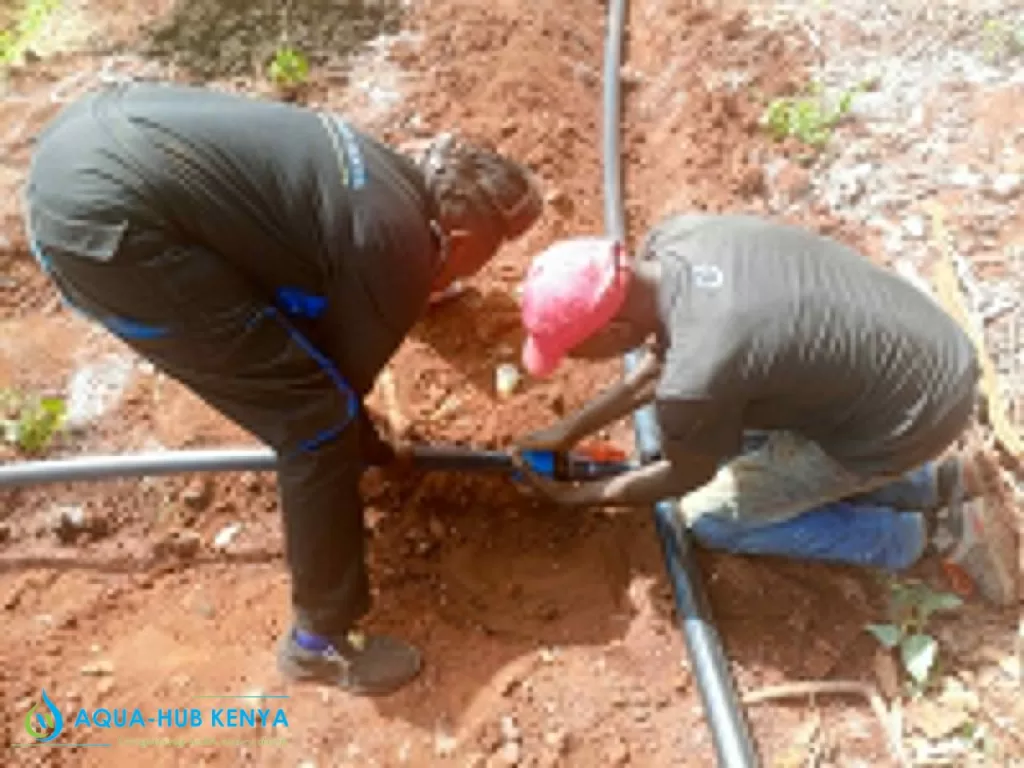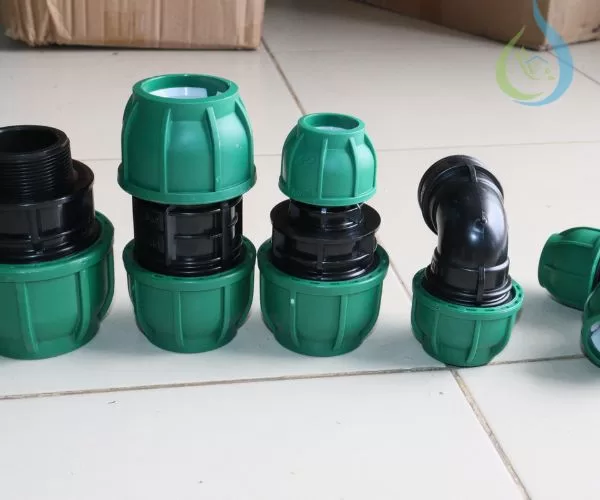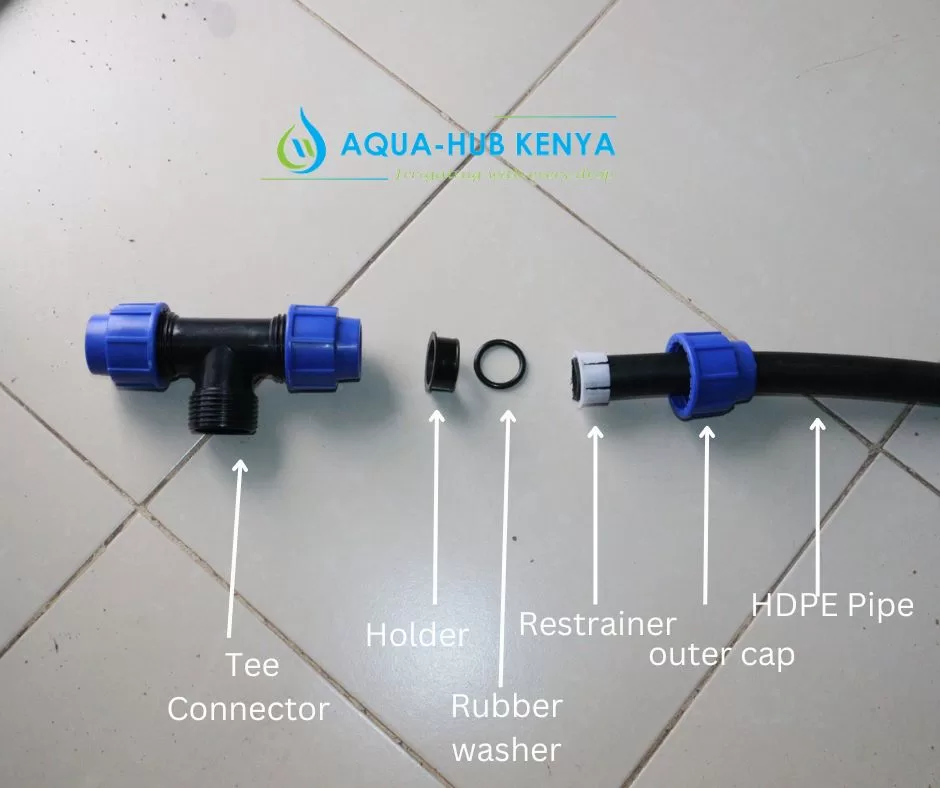HDPE Irrigation Pipes Prices in Kenya
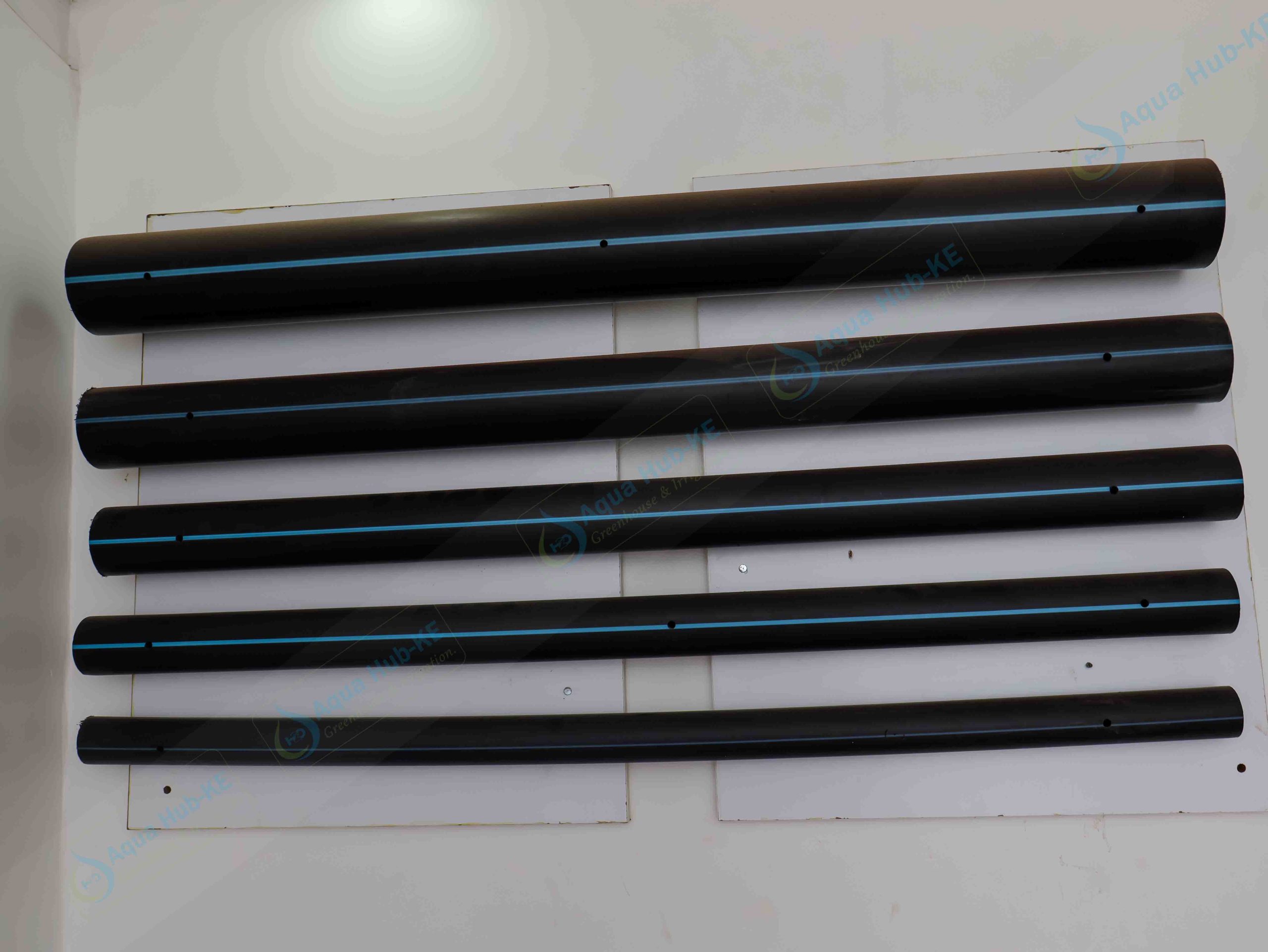
Irrigation pipes are available in different types including High Density Polyethylene Pipes which are popular for water supply in Kenya.
Our HDPE pipes are popular due to their quality and reliability in supplying irrigation water in most irrigation methods.
HDPE Pipes for Sale (Aqua Hub Kenya)
At Aqua Hub, we deal with high-quality HDPE pipes ranging from PN10 to PN16, all available in different sizes. Pipe diameter sizes range from 20mm to 110 mm at affordable prices in the market.
HDPE Irrigation Pipes in Nairobi
If you are looking for HDPE irrigation pipes, you can get them at Aqua Hub Kenya based in Nairobi. For those far from Nairobi, we conduct delivery to their specified locations at low cost.
Need Assistance? Call 0790719020
How to Get the Best Irrigation Pipes in Kenya
Nowadays, dealers in Irrigation pipes and accessories are many and it may be difficult to find best pipes and customer friendly prices. Despite how limited quality of pipe suppliers in Kenya are, you can still land best irrigation pipes at Aqua Hub Kenya.
We will help you choose the better pipe for irrigation or supplying water as per your water needs.
Call 0790719020
Specifications of Our HDPE Pipes
- High Density Polyethylene material (HDPE)
- Available in Sizes of 16mm to 110mm
- Pressure ranges from PN6 to PN25
- Standard length of 100m
HDPE Pipe Prices in Kenya
The cost of irrigation pipes varies according to the size of the pipe you want. It often ranges from KES 1500 to KES 40,000 for small diameter sizes of 16mm to 110 mm.
What are HDPE Irrigation Pipes?

HDPE stands for high-density polyethylene, a plastic component of polymers that is a raw material used to manufacture flexible pipes.
HDPE pipes are reliable for supplying water, oil, or gas in domestic and industrial applications. They pipes are tensile and strong accessories, and this explains their common application in high-pressure fluid supply.
What is the Difference Between HDPE and PE pipes?
HDPE are PE pipes that are more durable than Polyethylene (PE) water pipes. Polyethylene Pipes are popular in clean water supply systems due to their wide range of pressure ranges.
High-density polyethylene pipes are more flexible and reliable in different water supply systems including domestic and industrial uses.
What are the Common HDPE Pipe Selection Considerations?
Flow rates; The water needs to determine what pipes to select in size and flow rates.
Pressure ranges: HDPE pipes vary in pressure ranges thus the choice of pressure ranges is according to the water requirements.
Application or Usage: the type of application for the HDPE pipes must factor in because some uses such as irrigation farming may require small-diameter pipes.
Environmental conditions: Choose pipes by considering the climatic conditions of the area.
Durability: Learning how long a pipe can last is important when selecting the best pipe to provide long-lasting performance.
How to Connect HDPE Pipes
HDPE pipes can be connected through the butt fusion method, electrofusion, or through mechanical compression fittings.
Butt Fusion: HDPE pipes are heated and then joined to form a secure connection. This method is common in high-pressure applications.
Electrofusion: A method where an electrical current is passed through a specialized fitting to fuse the HDPE pipes. This is often used in situations where space is limited, or precision is required.
Mechanical Fittings: These HDPE pipe fittings are often used in temporary installations or systems where ease of assembly and disassembly is necessary.
What are the Common Fittings for HDPE Irrigation Pipes?
- Couplings: For connecting two HDPE pipes.
- Elbows: Makes it convenient to divert HDPE pipes, typically at 45° or 90° angles.
- Tees: to branch HDPE pipes into two directions. Basically, for distributing water to different farm sections.
- Reducers: Connect HDPE pipes of different sizes, allowing for changes in diameter.
- End Caps: Used to seal the end of an HDPE pipe, ensuring the system is waterproof.
What are the Uses of Different HDPE Fittings?
Elbows: mainly used in irrigation and water systems in areas where HDPE pipes pass around obstacles.
Reducer coupling: suitable for applications where size needs reduction to accommodate flow restrictions or smaller branches of a network.
Tees: Best in drip and sprinkler systems where water needs to flow to different farm sections.
Uses of HDPE Pipes in Irrigation
- Commonly applicable as mainline pipes for drip irrigation systems
- Mainline connection in sprinkler systems
- Rain hose start connection.
- Delivery pipes in irrigation systems.
What are the Advantages of HDPE Pipes
Capable of Long Shelf Life: HDPE pipes can last for a long time without damage. They can last for 50 years if well-maintained.
High tensile Strength: They exhibit high strength making them suitable for use in tough applications such as sewage containment and water treatment.
Non-corrosive nature: Plastic HDPE pipes are less corrosive due to their plastic nature.’
Zero Leakage: Our HDPE pipes connect to fittings and other pipes thus forming a secure and leak-proof connection.
Ease of Installation: HDPE Pipes are flexible, making them easier connect to irrigation pipes and fittings.
Effectiveness: HDPE pipes are more suitable than PVC as they are easier to repair and extend.


